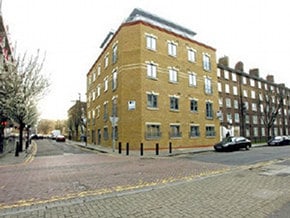Property developers are perhaps best seen as ‘conductors’.
A Property Developer is likely to engage in a wide range of property related activities – finding the best locations, sourcing funds, obtaining planning permission, building on raw land, organising renovations or repairs or leasing property, all with the end goal of making a profit on a particular project.
Within the UK, ‘development’ is formally defined by the Town and Country Planning Act 1990 as ‘the carrying out of building, engineering, mining or other operations in, on, over or under land, or the making of any material change in the use of any buildings or other land’.
Property development can thus refer to a wide range of directly and indirectly related activities; however, for most people the key theme is making money!
It is perhaps easiest to understand the role by considering a chronological sequence of events:
Research
The first stage to becoming a successful developer is to research the market.
This may involve liaising with a range of business contacts or property agents to ascertain what trends are developing in the market.
You may look at
- social demographics
- supply and demand factors
- macroeconomic and local economic factors
- statutory developments
Finding a property
Harold Samuels, founder of Land Securities, is credited with the now infamous phrase location, location, location.
One of the key objectives of the research phase is to find the optimum location to make money.
The optimum location is not necessarily the heart of a city because this is likely to be the highest priced areas.
The most successful property developers look to find a location that can be bought cheaply, developed cheaply and sold or leased for a high price.
Financing and planning permissions
Once a location has been found, most developers will have to leverage their initial deposit.
This will involve approaching a range of lenders, commercial banks, wealthy investors, fund managers or syndicate banks in order to obtain financing.
Property deals may range from the low thousands to many millions and, depending upon the scale of the transaction, a range of funding sources may be necessary.
Property developers may also work with other professionals such as consultants, conveyancers and lawyers to obtain necessary licences or planning permission for development.
They may have to make an application for a ‘change of use’ certificate.
These processes can be very long-winded and time intensive.
Developing the property
Developers may buy raw land to develop commercial premises, retail units, offices, hotels, housing or a range of other buildings.
They may also look to engage in conversions or renovations of existing buildings.
You will need to have knowledge of building regulations and may need a team of other professionals to support you.
You may need an architect, surveyor, engineer, interior designer, builders, electricians or project manager.
Marketing the property
The end goal of the development process is to yield a profit through either the sale or lease of the property.
Throughout the process it is imperative to keep a grip on costs and expenses.
You may need to have support from agents who will assist you in marketing the project.
You may look to involve agents early on in the process for off plan sales or bring them in later depending on the nature of the project.
Salary
Although there are a number of large scale property development companies a lot of developers choose to be self-employed as the rewards can be much greater.
Some of the wealthiest individuals in the world made their money through property development.
You could earn in excess of £100,000 a year if you are successful; however, the rewards will ultimately depend upon the size and nature of the project.
A bad project can result in a substantial loss whilst a successful project may reap many millions of pounds.
The property market is also highly correlated to the general state of the economy.
Take a look at our award winning housepricecrash website for more details of factors influencing the UK property market.
Responsibilities
There is a huge range of areas you may be expected to cover and it will vary greatly depending on the scale of the development and also the nature of the project e.g. office, retail, commercial or residential.
Property development in general is likely to involve:
- Identifying an attractive development opportunity.
- Responding to Requests For Proposals (“RFPs”) for redevelopment projects.
- Working with lawyers, agents and other professionals to draft contracts.
- Obtaining financing.
- Assembling development teams including architects, engineers, marketers, agents, builders etc.
- Project managing the development and overseeing any construction work to make sure it is delivered to deadline.
- Negotiating and obtaining planning permission and licences and keeping abreast of general industry developments and building regulations.
- Ensuring that health and safety requirements are satisfied.
- Negotiating prices for the purchase and sale of land and establishing base prices for publicly owned land.
- Assisting in the marketing of the development.
- Managing the property including organising day-to-day repairs or security, negotiating leases and contracts or hiring individuals to manage the property on your behalf.
Qualifications
There are no prerequisite qualifications needed to become a property developer.
You will, however, need to have sufficient capital to make an initial purchase.
There is now a range of qualifications available to prospective developers, which includes:
- University courses including MSc in Property Development. Take a look at the UCAS website for further details.
- National Federation of Property Professionals (“NFOPP”) – the NFOPP offers a series of property related qualifications, including awards in property assessment and residential and commercial letting.
- Awarding Body for the Built Environment (“ABBE”) – the ABBE offers a wide range of qualifications including property assessment, construction site management, surveying and valuation techniques.
- EDEXCEL – offer qualifications including residential property management and sales.
Skills
A Property Developer needs to have a wide range of skills and abilities.
Good attributes would be:
- Flexibility and the ability to work on a range of different projects.
- An ability to work and function in high pressure environments.
- An understanding and solid grasp of numbers and financial information. You will have to produce projections for financiers and update them on costs and investment capital provisions.
- Technical knowledge. You will need to be able to complete applications for planning permissions and obtain relevant licences.
- Excellent communication and managerial skills.
- Marketing and sales skills.
- Excellent project management skills including an ability to evaluate a variety of factors.
- A keen knowledge of costs and the ability to monitor and control expense.
- A willingness to work long hours, both in the office and on-site.
- Team work and management skills.
- Adaptability.
- An entrepreneurial flair.
Working Conditions
Due to the nature of the role, you are likely to spend considerable time working on and finalising a project.
This can be a high stress job and you will spend considerable time on-site, meeting with contractors and clients, financiers, investors and suppliers.
You may spend considerable time travelling, possibly including overnight trips.
As with any work involving construction, health and safety considerations need to be taken into account.
There may be significant structural work involved and you may have to organise for contractors and employees to have appropriate protective equipment.
Experience
The recent financial crisis has significantly affected the UK property market and many developers have struggled to source finance or sell properties at projected prices.
This has been testament to the importance of understanding the marketplace.
While no experience as such is needed, you should make sure that you have a solid understanding of the property sector and be business savvy.
Employers
Large listed companies – it is possible to work for a major property developer.
Some companies are listed.
Examples include Hammerson, British Land, Land Securities, and Vinci Construction UK.
Consultancies – skilled property developers will normally be able to source work with consultancies such as ARUP.
Self Employed – property as an asset class is relatively accessible (finance permitting) and many individuals choose to build and develop personal property portfolios, either employing teams of construction experts or completing works themselves.
Career Progression
If you are a successful property developer you will probably dedicate yourself to finding new development projects.
Image

Also known as…
- Property Developer
Related Jobs
- Architect
- Commercial Sales Negotiator
- Interior Designer
- Estate Agent
- Property Management Consultant
- Letting Agent
What’s it really like?
Zane Singh is a property developer.
He tells us what it’s really like..
How long have you been in this particular job / industry?
I’ve been involved with property for a long time.
My father runs a letting agent and property management business and has been involved with property for many years.
I started helping him out about 10 years ago and we still work together on projects to this day.
What did you do before this job?
I joined my Dad straight after school.
I always felt somewhat out of place at school and college wasn’t for me as you’re never really given the opportunity to be entrepreneurial.
What do you do in a typical day at work?
Property development doesn’t really involve a typical day.
We have several facets to our business and are involved in a range of property related activities.
Day-to-day we run an estate agency, letting agency and property management service.
We run a residential property book valued at around £45million.
The general agency stuff can be quite dull, dealing with tenants, organising for sinks to be unblocked and negotiating leases; however, when times are hard this is what keeps the bills paid.
The main thrust of our business, and what I am really passionate about, is finding opportunities for development.
We’re based in East London and the area has developed so fast and improved so much over the past 10 years and there are still a lot of opportunities to take advantage of the fashion for warehouse living.
I’ve also recently been working on a restaurant complex in London and we had our opening night about 4 months ago.
For a project – like the restaurant – your day will really depend upon what stage a development is at.
You want to minimise the time you spend with an asset that isn’t producing an income, so at the start of the process you want to find a property and see if you can get licences without having to pay financing costs.
Our book is generally large enough now to finance projects without needing external or bridging finance but the costs mount quickly if you do need money.
When you’ve ticked all the boxes you get down to the fun stuff – working with architects, designers and generally making a project and your ideas come to life.
You’ll spend a lot of time managing people – talking with architects, sourcing materials, managing a team of plumbers, electricians etc.
It’s your money on the line and you have to make sure that everything is done well and quickly.
What do you like about the job?
I get to do what I love every day.
Property has been part of my life for as long as I can remember and it is something I understand and which has been good to me.
I get to work with a wide range of people and see my ideas become reality.
Overall it is very fulfilling and can make you a lot of money…..
What do you dislike about the job?
… that said it can also be a complete nightmare when things are going wrong.
You might have tenants with their toilet overflowing ring you at 4a.m, or a roof collapse on a building or just find yourself frustrated by general bureaucracy.
I have to say that the last year has not been easy for the property sector in general.
What advice would you give to someone thinking of doing this job?
Property development isn’t really a job as such.
I don’t have a boss and am responsible for my own welfare.
If I want to be lazy I can be but at the end of the day I will lose out.
Not everyone is cut out to be a developer.
You need to be business savvy, entrepreneurial and be able to negotiate hard.
You also need to concentrate on building contacts.
Having a phone bursting with people you can call for a favour and reduce your costs is so important.
What job(s) do you think you might do after this role (i.e. career progression)?
I intend to retire at the age of 40 and lie on a beach.










